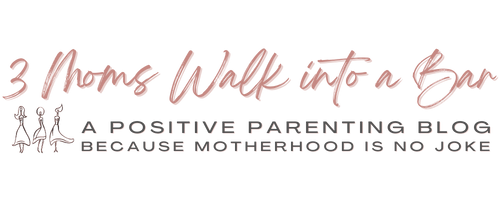Maria Calderoni recounts a surprise skirmish in the breastfeeding wars:
“We were excited to be going to lunch with one of our favorite families after church. Our party of 4 adults and a bunch of kids, including the other family’s baby boy, all crammed into a large booth. As we were getting ready to order, the kids were goofing around and the adults chatting. The other mom nonchalantly pulled a bottle out of her purse to feed her baby.
By this time, I had matured enough to be comfortable with whatever feeding method another family chose, but unfortunately, I had been pretty passionate in my descriptions about why we chose breastfeeding at our house. I was a La Leche League Leader and my children had been thoroughly indoctrinated in the benefits of breastfeeding.
As the mom began to feed her baby, I’m sure she felt it before she even saw the death stare bestowed upon her by my precocious 5-year-old. “You look offended that I am offering my baby a bottle,” she began, “but I bet you didn’t think about the fact that I might be giving him breastmilk in a bottle.”
My son visibly relaxed and so did I. Whew! Nice save! But then she continued, “But you’re right, It’s not breastmilk, It’s formula!”
She then went on to explain to my 5-year-old that some moms have trouble breastfeeding and some just choose formula, and that was a fine choice too. I made a mental note that we needed to work on teaching our kids respect for other people’s choices even if we still wanted to be enthusiastic about our own.

uncomfortable situations
You have probably noticed similar uncomfortable or even hostile exchanges over the topic of breast and bottle-feeding. It can unnecessarily divide moms along these artificial lines.
It is unquestionable that there are amazing benefits for breastfed infants and toddlers as well as their mothers. Babies and toddlers experience fewer infections, possible protection against obesity and diabetes, and even increased intelligence. Moms enjoy added protection against breast cancer, fabulous assistance with postpartum weight loss, and possible protection against Type 2 Diabetes and ovarian cancer–all while saving a boatload on baby formula.
The World Bank’s vice president for human development, Keith Hansen noted that “If breastfeeding did not already exist, someone who invented it today would deserve a dual Nobel Prize in medicine and economics.” (1) That is quite an endorsement.
every mom faces challenges when nursing a newborn
But the reality is that every mom faces breastfeeding challenges. Fortunately, there have been great strides in support of breastfeeding in the US. La Leche League has been joined in the support of moms by myriad other breastfeeding support groups and education programs. Breast pumps are now covered by health insurance, making more effective pumps accessible to those who may have otherwise struggled with the frustration of inferior functioning units. At-home-moms and working-outside-the-home-moms alike benefit from breast pumps, pumping for a break from difficult nursing (this got me through with the second child), pumping for occasional needs, or full-time pumping to feed a baby not able to nurse.
Under the Fair Labor Standards Act (FLSA), breastfeeding employees (at businesses with over 50 employees) are guaranteed reasonable break time and a place that is shielded from view to express breast milk for up to one year after the child’s birth. (2) Most small employers also provide hassle-free nursing breaks.
the golden age of nursing
The quality, style, and function of nursing support products have improved exponentially from just 20 years ago. We are in a golden age of breastfeeding.
However, it does not always work out. I did not make it very long with my first child. After being dismissed by my obstetrician as just having usual nursing challenges, I ended up with serious mastitis and 106 fever along with suffering complications from delivery that later required corrective surgery. I was heartbroken to give up on nursing. Subsequent kids were nursed for at least a year, some over two years. My first-born son and I bonded beautifully over bottles. And that was okay.
There are many reasons a mom may experience trouble with nursing: premature birth, a long separation from the baby, a traumatic birth experience, and poor latching which in turn doesn’t single the body to create a sufficient milk supply (this can be due to a baby’s tight frenulum, cleft palate, or other facial anomaly), mammary hypoplasia preventing the full volume of breast milk needed to exclusively breastfeed, a hormone imbalance, or an allergy/sensitivity to mom’s milk that do not go away even after diet changes. There are strategies and interventions to help with nearly all breastfeeding challenges a mom may face, but it does not work out 100% of the time. Don’t let it make you feel bad or less than.
still a golden age
We are also in a golden age of bottle-feeding. Formula companies have improved their formulations to more closely mimic many breastmilk nutrients. Bottle designs more closely mimic the baby’s nursing experience. There are many products on the market to support you.

support, support, support
Let’s not demonize or romanticize either feeding option. We can be respectful of others’ choices and still be enthusiastic about our own. It is a simple process:
- Support the mom breastfeeding in public. (Save the rubber-necking and scorn.)
- Support the mom bottle-feeding. (The same goes here.)
- A friendly nod in either instance goes a long way.
- Optional: Offer assistance, “Let me know if there is anything I can do to help while you’re feeding the baby.”
Have you experienced hostility about your choice of infant feeding? Share in the comments or email connect@3momsblog.com. We’ll share those in a future post.
Visit our freebies page for more mom resources.
- Breastfeeding: a smart investment in people and in economies. Keith Hansen. January 30, 2016. The Lancet. Accessed 4/30/23 at https://www.thelancet.com/journals/lancet/article/PIIS0140-6736(16)00012-X/fulltext
- Fact Sheet #73: FLSA Protections for Employees to Pump Breast Milk at Work. Revised January 2023. Accessed 4/30/23 at https://www.dol.gov/agencies/whd/fact-sheets/73-flsa-break-time-nursing-mothers





